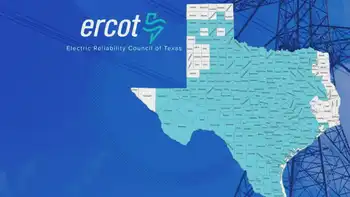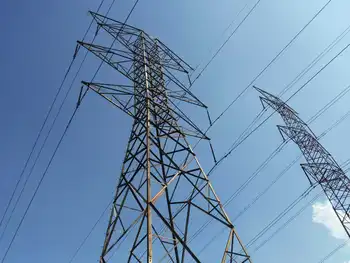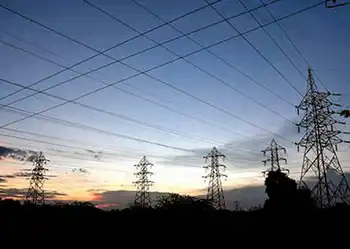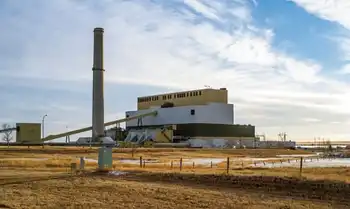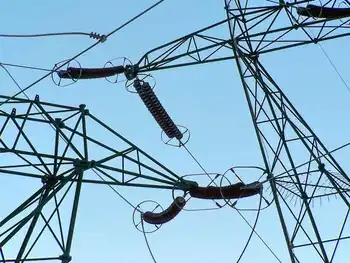Lawmakers push bill to connect Texas grid to rest of the nation
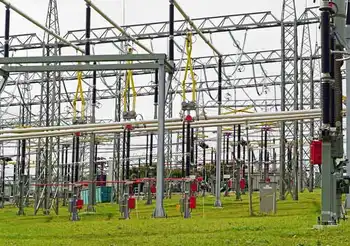
Arc Flash Training CSA Z462 - Electrical Safety Essentials
Our customized live online or in‑person group training can be delivered to your staff at your location.

- Live Online
- 6 hours Instructor-led
- Group Training Available
Connect the Grid Act links ERCOT to neighboring grids via high-voltage interconnections, enhancing reliability, resilience, and renewables integration. It enables power imports and exports with SPP, MISO, and the Western Interconnection under FERC oversight.
Key Points
A plan to link ERCOT with neighboring grids, improving reliability, enabling energy trade, and integrating renewables.
✅ High-voltage ties with SPP, MISO, and the Western Interconnection
✅ Enables imports during crises and exports of surplus power
✅ Brings ERCOT under FERC oversight; DoE to study Mexico links
In the aftermath of the devastating 2021 Texas blackouts, which exposed the vulnerabilities of the state's energy infrastructure, a significant legislative effort is underway to transform Texas from an energy island into a connected component of the broader U.S. power grid. Spearheaded by U.S. Representative Greg Casar, D-Austin, the proposed Connect the Grid Act is part of a push for smarter electricity infrastructure that seeks to remedy the isolation of the Electric Reliability Council of Texas (ERCOT) from neighboring power grids, a condition that significantly contributed to the crisis during Winter Storm Uri.
The blackouts, which left millions without power and resulted in significant loss of life and economic damage, underscored the inherent risks of Texas's unique energy infrastructure. Unlike the rest of the continental U.S., Texas's grid operates independently, limiting its ability to import electricity during emergencies. This isolation was a critical factor in the state's inability to respond effectively to the increased demand for power during the storm.
Recognizing the urgent need for a more resilient and integrated energy system, Rep. Casar's legislation aims to establish high-voltage connections between ERCOT and adjacent grid-operating organizations, including the Southern Power Pool, MISO, and the Western Interconnection. This would not only improve the reliability of Texas's power supply by enabling energy imports during crises but also allow the state to export surplus energy, thereby enhancing the economic efficiency and sustainability of its energy market.
The Connect the Grid Act proposes a range for the new connections' transfer capabilities, aiming to significantly boost the amount of power that can be shared between Texas and its neighbors. Such interconnectivity is anticipated to reduce energy costs for consumers by mitigating scarcity and enabling access to Texas's vast renewable energy resources, even as grid modernization affordability remains a point of debate among stakeholders. However, the bill faces opposition due to concerns over federal oversight, as it would bring ERCOT under the jurisdiction of the Federal Energy Regulatory Commission (FERC).
Some analysts note that policies such as later school start dates can ease late-summer peak demand as well.
At a press conference held at the IBEW Local 520 headquarters, Rep. Casar, along with environmental groups, labor unions, and frontline workers, highlighted the benefits of the proposed legislation. The bill also includes provisions for a Department of Energy study on the potential benefits of interconnecting with Mexico, and parallels proposals for macrogrids in Canada that seek greater reliability across borders.
The Connect the Grid Act reflects a broader national trend towards increasing the interconnectivity of regional power grids, a move deemed essential for the transition to renewable energy and combating climate change risks to the U.S. grid through expanded interconnection. By enabling the flow of clean energy from renewable-rich areas like Texas to energy-hungry urban centers, the legislation supports a more sustainable and resilient national energy infrastructure.
Critics of Texas's grid independence, including energy experts and federal regulators, have long advocated for such interconnections. They argue that increased access to neighboring grids could have mitigated the effects of the 2021 blackouts and emphasize the importance of a grid that can withstand extreme weather events. The Federal Energy Regulatory Commission and the North American Electric Reliability Corp. have both explored mandates and studies to promote electricity transfer between regional grids, while states like California grid upgrades are investing to modernize networks as well, highlighting the national importance of grid interconnectivity.
Despite the potential challenges of increased federal regulation, proponents of the Connect the Grid Act argue that the benefits of interconnection far outweigh the drawbacks. By reducing energy costs, enhancing grid reliability, and promoting renewable energy, the legislation aims to secure a more sustainable and equitable energy future for Texas and the nation.
If passed, the Connect the Grid Act would mark a historic shift in Texas's energy policy, ending the state's long-standing isolation and positioning it as a key player in the national and potentially international energy landscape, and echoes calls for a western Canadian electricity grid to strengthen regional ties. The bill sets a completion deadline of January 1, 2035, for the construction of the new connections, with other projects, like the one by Pattern Energy, potentially connecting ERCOT to parts of the Southeastern grid even earlier, by 2029. This legislative effort represents a critical step towards ensuring that Texas can meet its energy needs reliably and sustainably, while also contributing to the broader goal of transitioning to a cleaner, more resilient power system.





